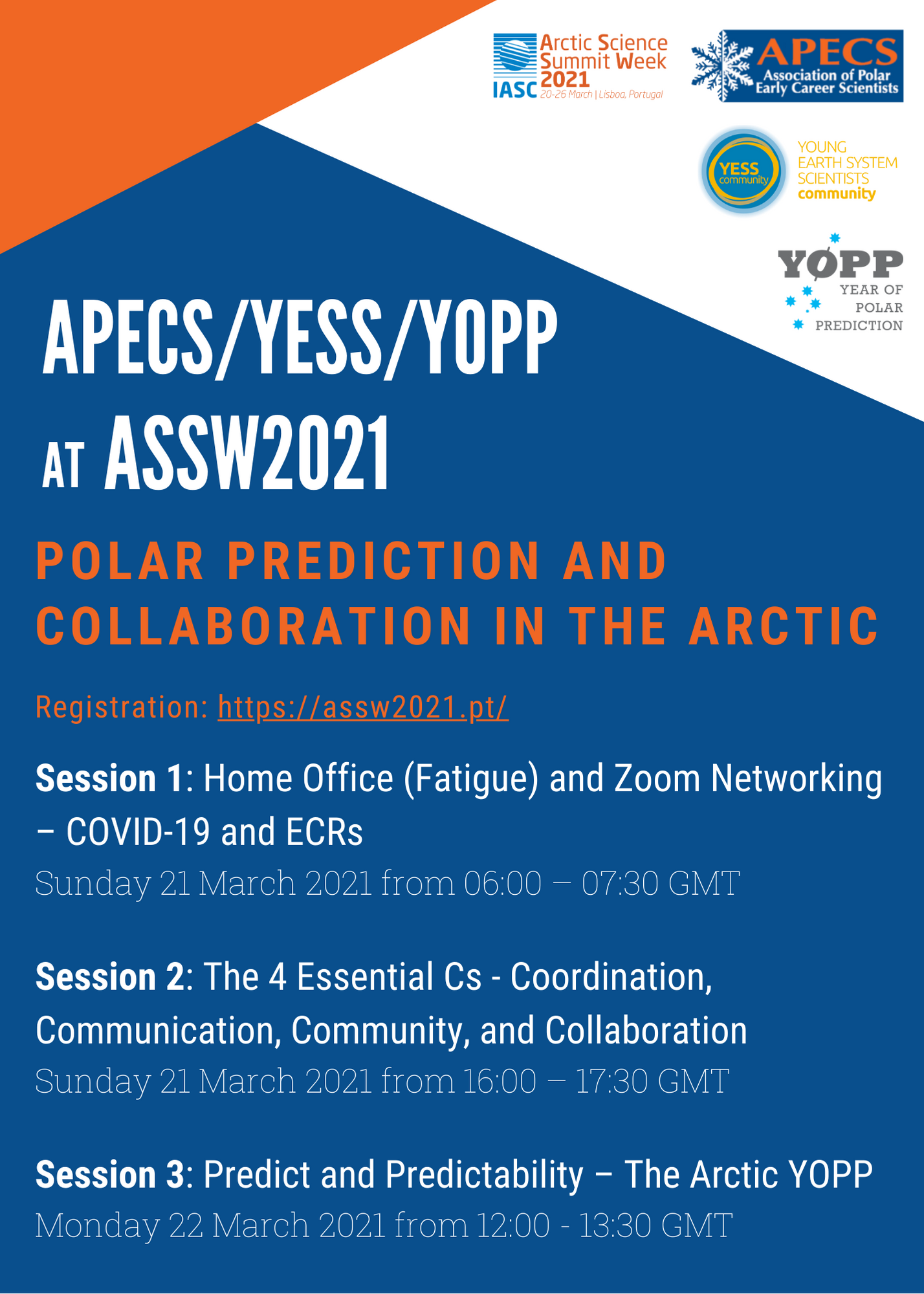Sunday, 21 March 2021 06:00 – 07:30 GMT
We heard about different national and international surveys and experiences that were carried out to better understand the impact of the pandemic on academia. Following the talks, we invited early-career scientists to join us for a panel discussion on the impacts COVID-19 may have on their scientific work.
-
Kirstin Werner: YOPP survey “Expected COVID-19 Consequences to Polar Weather and Sea Ice Prediction Research – Early Concerns by the Polar Prediction Community”
In July 2020, the WMO WWRP International Coordination Office for Polar Prediction (ICO) sought to better understand what the impacts of the COVID-19 pandemic have been so far, and what is expected for the months to come. Therefore, a survey was designed to request feedback from the PPP/YOPP community working within the field of weather and sea ice forecasts in the polar regions. Outcomes of this survey show that during this early stage of the pandemic, major concerns included a gap in observations and data collection due to cancelled field work and maintenance. Other worries involved funding opportunities for polar programs that might be endangered in the future as well as networking opportunities – both could hit hard, in particular, for early career researchers. -
Valentina Rabanal: YESS survey on ECR impacts “Early Career Earth system scientists during COVID-19 crisis: lessons learned from an open survey”
In my presentation, talked about the report created by the YESS Community, which summarizes the common challenges ECRs are facing and show some recommendations on how to build a supportive environment that facilitates sustainable development for ECRs in the post-pandemic world. This report is the result of a careful analysis of the 197 responses received between April and June 2020. Although the report focuses on ECRs, it is also relevant to the broad scientific community. -
Cara Nissen: “The Impact of the COVID-19 Pandemic on Postdocs at the Alfred Wegener Institute (Germany)”
In my presentation, I summarized the main outcomes of a survey conducted in November 2020 by the Postdoc representatives at the Alfred Wegener Institute (Germany), which aimed at identifying the difficulties faced by postdocs at the institute as a result of the COVID-19 pandemic. Of the 65 postdocs who participated in the survey, a substantial fraction reported cancelled expeditions, laboratory work, conferences or other meetings, together worsening their ability to network, discuss research ideas, or share their findings. In my talk, I highlighted how, based on our survey results, the impact of the pandemic varies across the academic age of the postdocs, with recent PhD graduates expressing more worries regarding their future career prospects and experiencing a more severe deterioration of their mental health than experienced postdocs. -
Daniela Liggett: “Antarctic research during a pandemic: The impact of COVID-19 on the Antarctic scholarly community”
In my short presentation, I discussed some of the results of an online survey that aimed at understanding the impact of COVID-19 on the Antarctic research community. This survey was undertaken in November and December 2020 and aimed at identifying who the most adversely affected Antarctic researchers were and what kind of additional support they might find most useful. The survey forms part of an interdisciplinary international research programme on the short-term and long-term consequences of a global pandemic on the Antarctic community of practice more broadly. -
Shridhar Jawak: “Svalbard science in times of the COVID-19 pandemic: an overview of impacts and responses from SIOS’s perspective”
In my short talk, I focused on summarizing the impacts of COVID-19 on the Svalbard research community and how we responded to the changing situation. This included SIOS's survey on assessing impacts of the COVID-19 pandemic on the Svalbard science community and the variety of activities developed in response to the changing situation. I also focused on our upcoming activities to help field campaigns in Svalbard in 2021.



